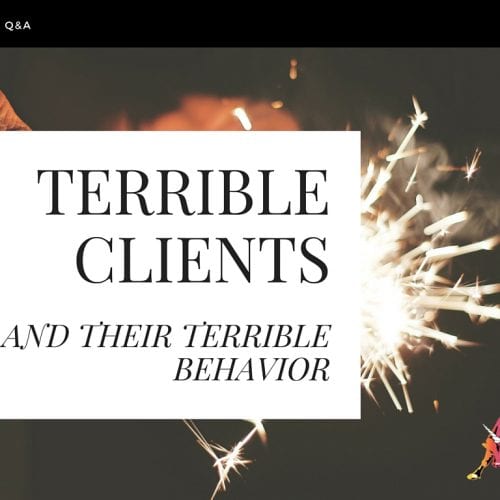
Jennifer Dziura writes career and life advice weekly on TheGloss, archived at GetBullish. Check out the 2013 Bullish Conference here.
I am working on my masters part-time at while working full-time as a software engineer. I’ve always dreamed of founding my own startup, and a few days ago, a startup approached me to join their founding team. I have to pick one or the other because I HAVE TO keep my day job.
Half of me wants to do my startup because as engineers know — its all about what you have built. But my university is a big name to drop (especially for me since I didn’t go to the US for undergrad).
I know that a trait of high achievers is that they know when to say NO, and I’m worried I’m saying yes to the wrong thing by accepting this startup, because of the following reasons:
1. I’m stopping school — there will be more startups, right?
2. I’m worried it will affect my performance at my corporate job.But I want to take the startup route because this is IT. This is everything I’ve dreamed of doing.
What do you suggest I should think about when making this decision? What would you do?
What a big decision!
First of all, keep in mind that a lot of startups are not as shiny as they seem. Some founders get really into startup culture, push forward with nothing but loud talk and a sense of entitlement, and in the end, dear god, it’s another app that helps privileged urban people make their lives slightly more convenient. Or worse, someone has “gamified” the process of say, choosing a pediatrician. (Revenue? That’s for somebody’s uncle’s dry cleaning operation — young, cool kids don’t care about revenue.)
It can sometimes be lucrative to sell a company like that to Google. Is that enough for you? Is that what you want to do?
You didn’t mention what this startup does, but is it really worthwhile, exciting, world-changing?
Back when I was running my internet marketing firm, my biggest client was a startup that had gotten a first round. Every time I sent them a bill, I’d get, “We can pay this in two weeks … or you could take equity instead. How about equity?” People told me I was an idiot for not taking the equity. I was not. While at first I was impressed and intimidated by the fact that these guys were constantly flying to LA and taking meetings and talking about their valuation, I soon realized that these people were Not That Smart (I could tell stories about them all day, but maybe I’ll just settle for the one time the CEO forwarded me an email hoax his relative had forwarded to him, and he asked me to pull all the addresses from the header and spam everyone). I took the cash and didn’t feel like an idiot when they inevitably failed.
There will be a lot of other startups. How hard would it be to get hired as a software engineer at another startup, later? Especially once you’ve finished your degree, and have even more full-time experience?
What makes this the startup?
Is the startup offering you enough money to make a difference? Enough money to compensate you for lost educational progress? Are they saving the world? Would you be proud of this in twenty years?
Once, I was in a bad relationship and hesitated dumping the guy because we’d talked about having kids — talked really specifically about them, giving them names and everything — and I was sad that, if we broke up, those specific kids would never exist. Well, yeah. Every time you decide not to have sex with some random dude, there’s some specific possible human who will never be born. There’s no point thinking about it.
If you don’t join this startup, you won’t be a part of their growth and eventual exit — just as you are not currently part of the growth and eventual exits of thousands of other startups. They’re all special snowflakes in their own ways. This particular opportunity will never come again. But, you know, Amazonia and Jean-Luc Dziura-Exboyfriend never came into existence, and I see now that their opportunity cost would have been very high.
If you stop grad school, it’s not that likely that you’ll start again — unless the startup fails, and then you’re kind of back where you are now.
So, I’m just not seeing it, unless you’re hiding an argument for why this startup is THE ONE. Not just some boy who likes you. (My metaphor is still going!)
By the way, how did this offer come in? The startup approached you? How can you make that happen more? Keep doing whatever you’re doing. Do great work, write great articles, go to the right events. If people keep approaching you and you keep turning them down, um, that would be incredibly badass. Imagine how confident you would be going into interviews post-masters, knowing that you spent the years you were earning that degree pretty much beating off offers with a stick. Badass.
It’s usually better to be in demand than to jump at other people’s requests.
And there might be a bit of a hybrid solution. Perhaps you could tell them you can’t take on a startup right now, but you’d like to offer yourself as a consultant. Limit the consulting gig to your very specific area of expertise (whatever you’re focusing on in this awesome masters program), and define the time commitment/deliverables clearly so that even if the company fails, your part is long over and you can call your consulting gig a success. You get the line on your resume, without letting someone else hijack your career plan.
I hope that helps. And I don’t mean to be too biased — maybe this really is THE startup, and you just didn’t mention to me the reasons why. Maybe a good way to decide would be to say if you can come up with three reasons why this startup opportunity is clearly superior to other offers you will likely receive in the future, then you negotiate with them.
Send in your questions to jen@getbullish.com or follow on Facebook or Twitter @getbullish. Check out the 2013 Bullish Conference here.







